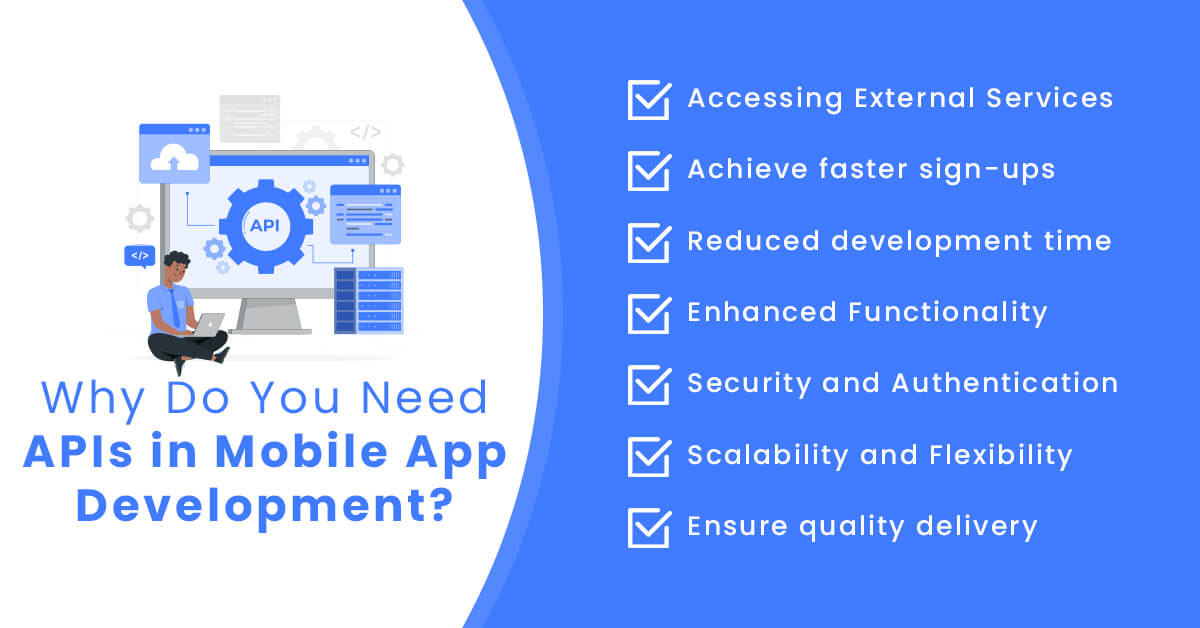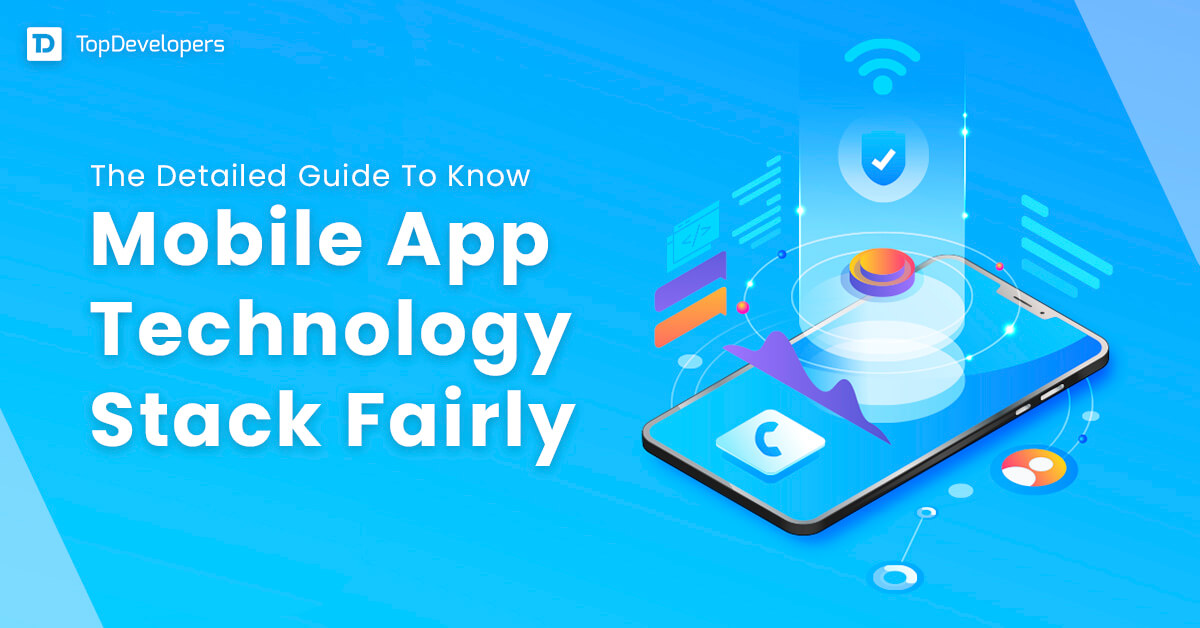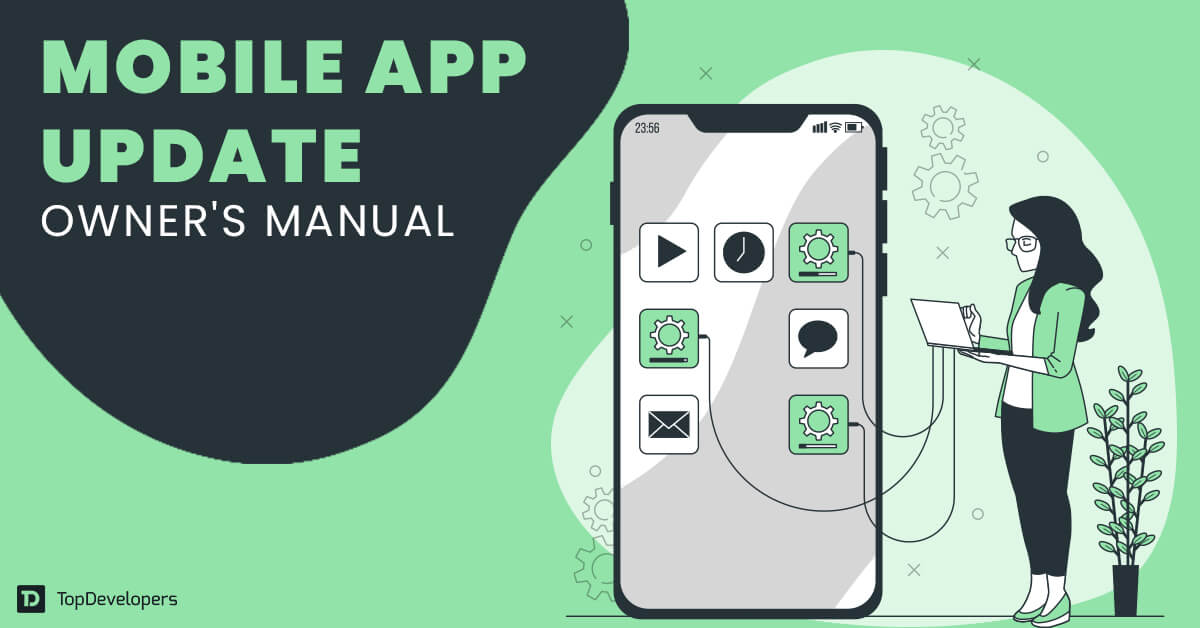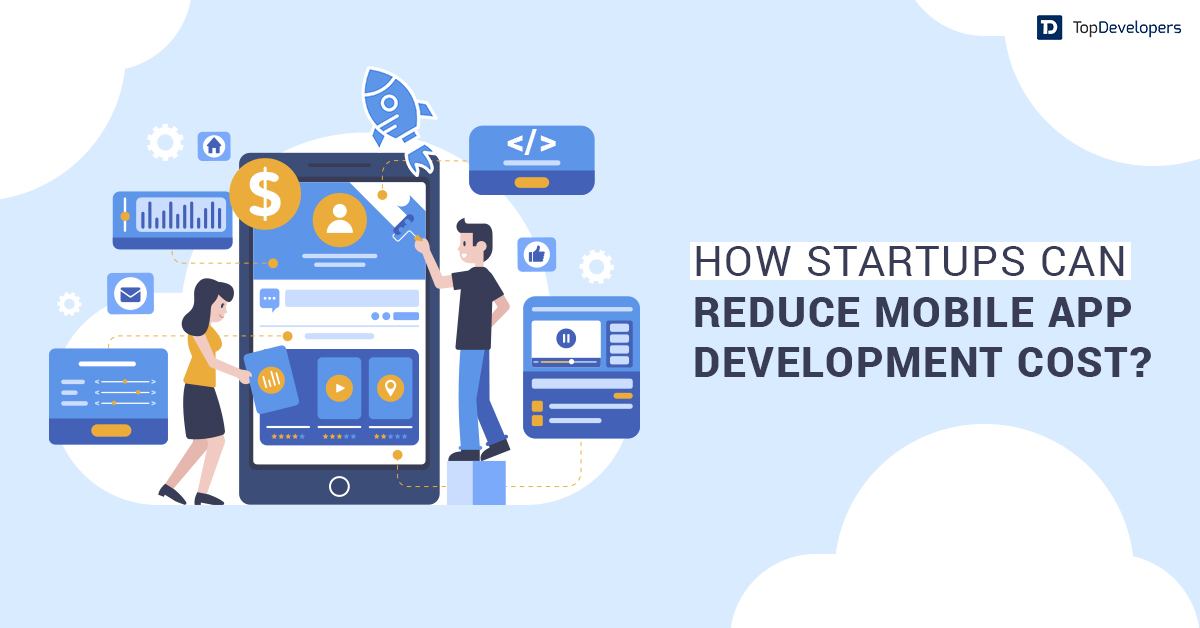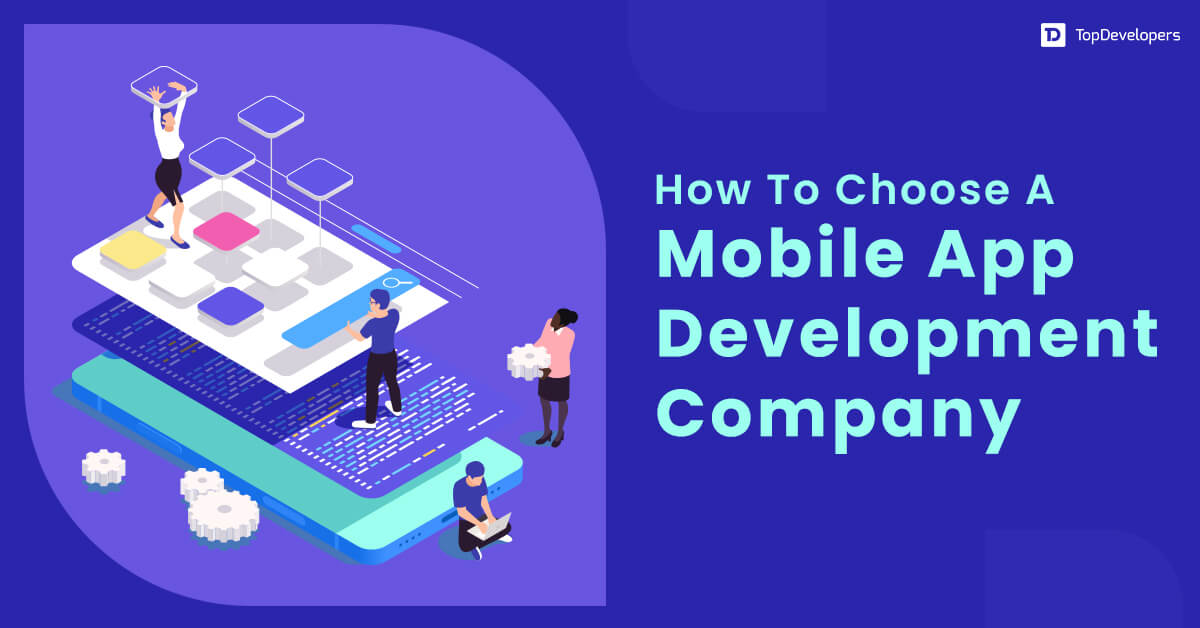
In the competitive market, the app ideas soon become a passive faux, which has created a need for building the mobile app in reduced time. Reduced time-to-market of the app helps businesses to meet the users’ needs before the competition does and gain maximum user traction. Mobile app development companies are making it feasible by leveraging API in mobile app development.
According to Rapid’s 4th annual state report for API, 70% of developers will increase API usage this year which highlights the importance of APIs that businesses are taking seriously to meet digital goals. 63% of IT companies invest heavily in API usage for high-priority business projects.
It signals businesses prefer leveraging API for mobile app development to quickly and efficiently scale their products or tap on the IT opportunity. The popular usage of PayPal for easy payment, Google Maps to track real-time location, and Facebook API for social sharing showcases the real-world usage of APIs that have become too common.
In this blog, we will dig deeper to understand what is API and why businesses should prefer using API for mobile app development. Let’s dive in!
Table of Contents
What is API for mobile applications?
API (Application Programming Interface) for mobile app development refers to a set of rules, protocols, and tools that allow mobile app developers to interact with external services, libraries, or databases to enhance the functionality and capabilities of their mobile applications. APIs act as intermediaries, enabling different software systems to communicate and exchange data with each other.
The APIs help businesses to keep their business application stay up-to-date with the latest mobile app development trends. All of these trends require some API integration in some or other form to enable advanced features or functionality.
The APIs also come in three types- internal APIs which are used by 75% of the developers, partner-facing APIs which are used by 49% of the developers, and third-party libraries which 54% of the developers favor use. Take a deep dive into the benefits that businesses will reap with APIs in using them differently.
How do APIs for mobile apps help businesses in distinct ways?
Just the way the importance of mobile app development cannot be overlooked so is the case with APIs. The APIs (Application Programming Interfaces) are used for various reasons, for instance, to enhance app’s functionality and improve user experience. Here are some key reasons why use APIs for mobile apps:
Accessing External Services
Mobile app developers use APIs to access external services provided by third-party platforms, such as social media platforms, payment gateways, mapping services, weather data, and more. These services are usually hosted on remote servers, and APIs provide a standardized way for mobile apps to communicate with these services over the Internet.
Mobile apps often need to interact with backend services and databases for features like user authentication, data processing, and file storage. APIs facilitate this communication between the app and backend systems.
Achieve faster sign-ups
APIs helps to integrate third-party authentication providers (such as Google, Facebook, Twitter, or Apple) into mobile apps. For example, Facebook API allows apps to enable Facebook login, share content, and access user information from Facebook profiles. Twitter API enables apps to post tweets, retrieve user timelines, and implement Twitter login.
With one-click sign-up options, users can use their existing social media accounts to sign in quickly, eliminating the need to create new credentials. The support for password-less authentication methods, biometric authentication, and data prefill enables users to sign-up and log in faster.
Reduced development time
APIs significantly contribute to reducing mobile app development time by providing pre-built functionalities and services that can be readily integrated into mobile apps. The ability to reuse existing code and functionalities, eliminating the need to build everything from scratch. By leveraging APIs for common tasks like authentication, data retrieval, and payment processing, your hired mobile app developers can focus on building unique features that add value to the app.
A standardized way to integrate external services into the app enables rapid integration of services. Plus, the platform-agnosticism of API allows the creation of cross-platform apps more efficiently. Single API integration can support multiple platforms (iOS, Android, web) with minor adjustments.
Enhanced Functionality
APIs allow to integrate advanced functionalities into your mobile apps without having to build everything. It reduces the time to write the code for creating a functionality. For example, using a speech recognition API such as IBM Watson API or Microsoft Azure Cognizant services API facilitates speech-to-text and enables vision, speech, and language understanding while using a facial recognition API enables facial recognition capabilities in an app.
Firebase Cloud Messaging (FCM) API allows mobile applications to send and receive push notifications to engage users with relevant updates. Mixpanel API enables in-depth user analytics and segmentation for better app tracking, which further helps in improving the app’s performance.
Security and Authentication
The mobile app development tech stack is the backbone of the app on which performance, security, and user experience depends. It’s selected judiciously so that app remains usable and appealing in every way. When it comes to app security, technologies, tools, mechanisms, and a lot are chosen optimally for app development. APIs also lend a hand in getting a secure app developed.
APIs can provide secure authentication mechanisms, ensuring that user data and interactions are protected. They can also enable encryption and data access control, enhancing the overall security of the app, which reduces the risk of data breaches and cyberattacks, and fosters user trust in the mobile app. For instance, OAuth API enables secure user authentication and authorization across various services and platforms.
Many security APIs are designed to address common security vulnerabilities outlined in the OWASP (Open Web Application Security Project) Top 10 list, such as SQL injection, cross-site scripting (XSS), and insecure direct object references. Integrating these APIs can help safeguard the app against these threats. In the same vein, the APIs are advanced enough to prevent brute-force attacks and ensure compliance with data protection regulations such as GDPR.
Scalability and Flexibility
Maintaining a pace with changing market conditions and evolving user preferences require business applications to scale whenever required. APIs provide flexibility that enables the app to quickly adapt to changing requirements or user demands without significant code changes as APIs promote a modular approach to app development.
During the holiday season or peak times, handling increased user demand and traffic without the need for extensive infrastructure management is quite a task. As APIs run on cloud-based infrastructure, allowing mobile apps to scale efficiently when there is a surge in users or data volume. This scalability ensures that the mobile app can handle increased user traffic and demand. Also, the capability of offloading computationally intensive or data-intensive tasks improves the app’s performance.
Ensure quality delivery
The mobile app development guide highlights the importance of app testing in the app development journey as only high-performant, bug-free, and responsive apps gain space in the cutting-edge competition. APIs play a crucial role in improving app testing by providing a more efficient, comprehensive, and reliable testing environment. With test automation, isolated component testing, and data-driven testing, the tests are executed in reduced time.
Plus, seamless integration of APIs with CI/CD pipelines enables automated testing with each code commit, which ensures that new changes don’t break existing functionality. Load testing, security testing, regression testing, and mocking enable better collaboration between testers and developers as it provides clear API documentation to developers, helping them understand the expected behavior and response of the app’s functionalities.
Top Free APIs for Mobile App Development
Some APIs are leveraged at scale by the tech giants for custom app development that has made the app more accessible and usable. Consider these 10 APIs that are free to use and provide a range of benefits without impacting app development budget.
- Google Maps API
- Google Drive API
- API Gmail
- Google Analytics API
- Google Calendar API
- Facebook API
- YouTube Data API
- Foursquare API
- Telize
- ZeroBounce
What does the future hold for API usage in mobile apps?
API integration in mobile app development is instrumental in streamlining development workflows, enhancing app quality, accelerating the time-to-market, increasing user engagement, achieving security, and improving scalability and flexibility. It enables businesses to offer feature-rich, modular, adaptable, and competitive mobile apps more rapidly, which encourages users to engage with the app and positively impacts in user retention and app success.
The popular use cases of API usage in mobile app development ensure that they are the future. However, just the way the selection of the best app development framework is vital for mobile app development, API selection also plays a crucial role. It’s not easy for the business stakeholders to design API strategy. Here, consulting the mobile app development experts helps you know if your business application needs an API strategy and if so, which APIs should you consider.
 Avantika Shergil
| Aug 3, 2023
Avantika Shergil
| Aug 3, 2023
Avantika Shergil is a technology enthusiast and thought leader with deep expertise in software development and web technologies. With over 8 years of experience analyzing and evaluating cutting-edge digital solutions, Avantika has a knack for demystifying complex tech trends. Her insights into modern programming frameworks, system architecture, and web innovation have empowered businesses to make informed decisions in the ever-evolving tech landscape. Avantika is passionate about bridging the gap between technology and business strategy, helping businesses build customized software and website, and understand about different tools to leverage effectively for their ventures. Explore her work for a unique perspective on the future of digital innovation.
